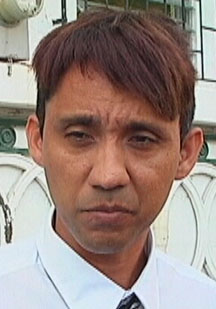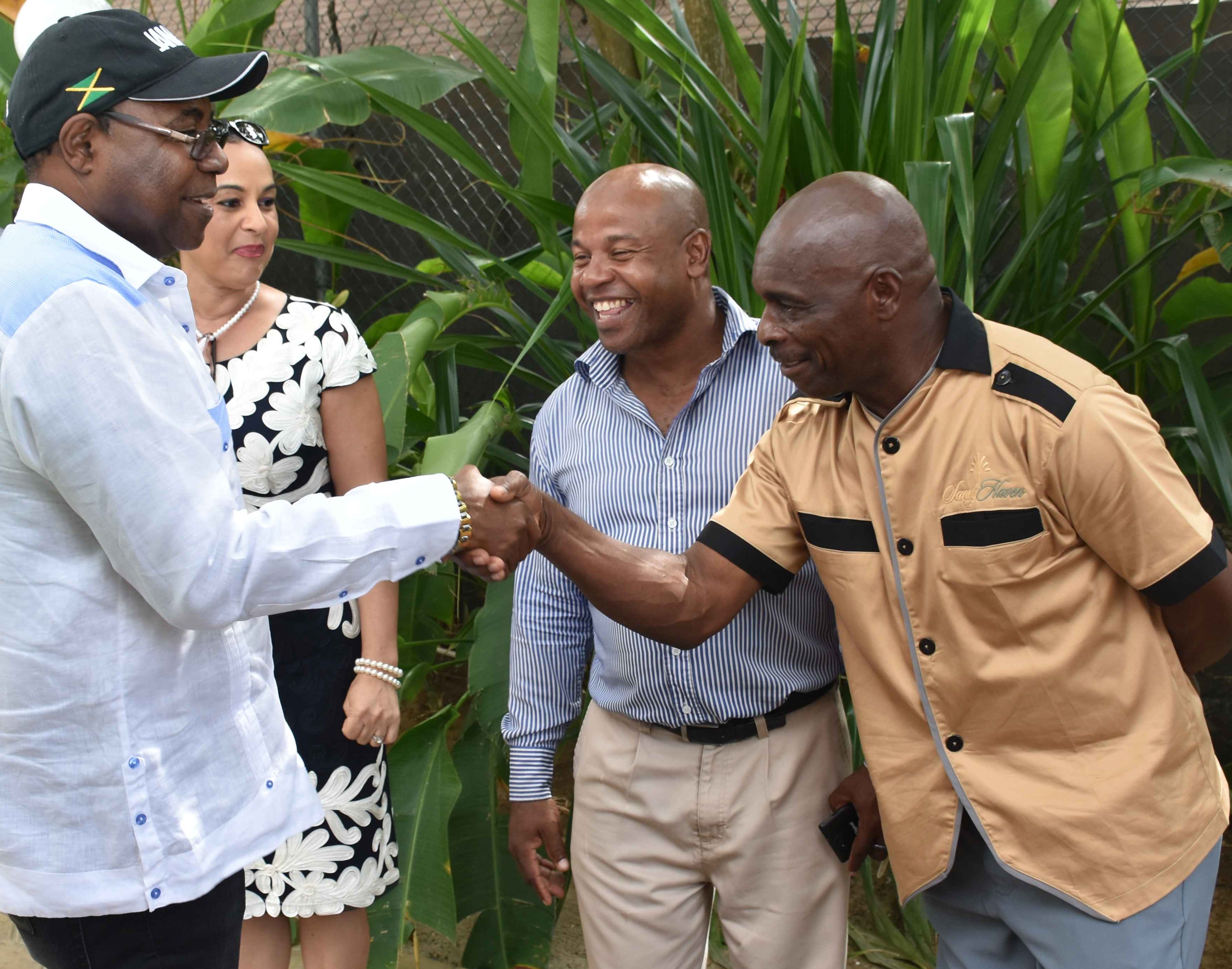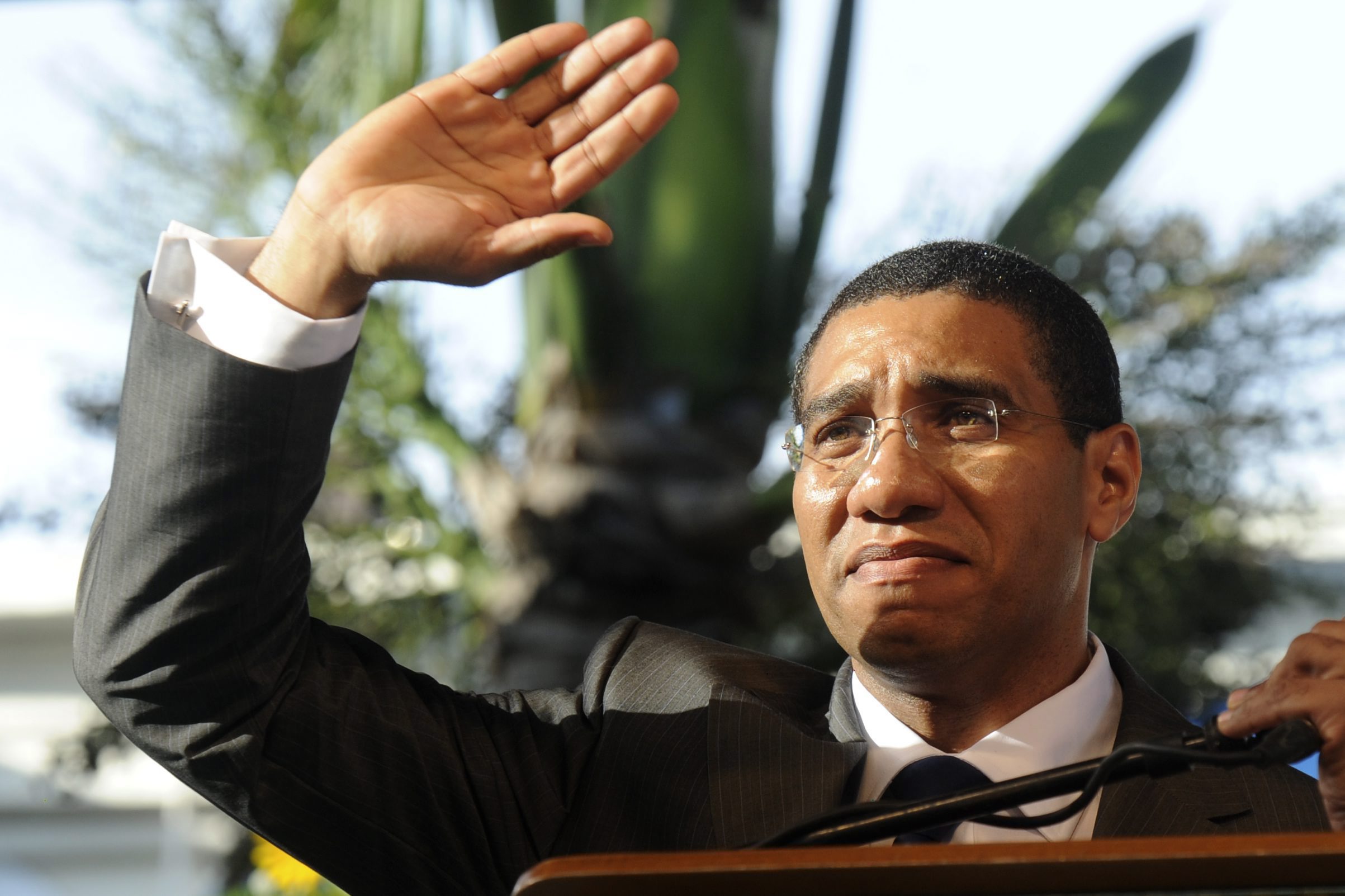OROZCO AND UNIBAM WELCOME SUPREME COURT’S RULING THAT THE “UNNATURAL CRIME” IN BELIZE IS UNCONSTITUTIONAL
 In a greatly anticipated oral decision delivered on Wednesday, August 10, the Honorable Chief Justice of Belize, Kenneth Benjamin, ruled that section 53 of the Criminal Code is inconsistent with the Constitution of Belize.
In a greatly anticipated oral decision delivered on Wednesday, August 10, the Honorable Chief Justice of Belize, Kenneth Benjamin, ruled that section 53 of the Criminal Code is inconsistent with the Constitution of Belize.
His decision, which has been applauded by the LGBT and human rights community in Belize in court and outside, came in the constitutional case brought by Caleb Orozco in July 2010. Orozco, a gay man, is the Executive Director of the United Belize Advocacy Movement (UNIBAM), a policy and advocacy human rights NGO working to advance the rights protection and enforcement for LGBT persons, which is also an interested party in the case.
Today Orozco was accompanied in the Supreme Court by his sister Golda Neal, who sat beside him in court, two of his lawyers, Lisa Shoman SC and Westmin James, the President of UNIBAM, Simone Hill, other UNIBAM members and many other supporters of the litigation. A representative of PETAL (Promoting Empowerment through Awareness for Lesbian and Bisexual Women) said, we are here because the Orozco case “is about the human rights of all”.
After court, Orozco said that today “is a proud day with a history-making judgment for Belize, the country which I am proud to call home. Our courts are there to protect us all. In striking down Section 53, we have reaffirmed ourselves—consistent with the Belize Constitution—as a society built on dignity and respect for all.”
Orozco and UNIBAM argued that section 53 of the Criminal Code violates his constitutional rights, and that of many other Belizeans, to human dignity, privacy and equality before the law because it criminalizes sexual intimacy between consenting adults, even in private. Section 53 makes “carnal intercourse against the order of nature’, which includes anal sex, a crime punishable by up to 10 years imprisonment.
In a groundbreaking decision, the Chief Justice ruled that Orozco has legal standing to bring his claim and did not need to show that he was being actually prosecuted under S. 53 to bring a claim, and that the very existence of the law made him an “un-apprehended felon”. The Court also stated that it could not shirk its responsibility in interpreting whether any law is consistent or not with the Constitution and therefore could not simply abdicate its power to the legislature.
Orozco prevailed on all points of his claim. The Chief Justice decided that section 53 is inconsistent with the Constitution of Belize because it violates the right to human dignity, privacy, freedom of expression and non-discrimination and equality before the law and equal protection of the law. The Court then ‘read down’ S. 53 of the Criminal Code to exclude consensual sexual acts between adults in private.”
The Chief Justice also ruled that the definition of “sex” in S. 16 (3) of the Constitution of Belize includes ‘sexual orientation’, which is consistent with Belize’s international obligations.
After court, President of UNIBAM Simone Hill stated that “this case is an important part of the march forward in Belize and the Caribbean towards dignity and respect for the human rights of all. Decisions throughout Caribbean history that have had advanced human rights have not been decisions arrived at easily or quickly.”
Laura Tucker-Longsworth, chairperson of National AIDS Commission of Belize, says that “section 53 as a national issue because it has implications for HIV prevention and care. Education is key for creating meaningful change in our society.”
Mrs. Kim Simplis Barrow, the Special Envoy for Women and Children said ” It’s a great day for Belize, it’s a great day for human rights; one step closer to dignity and the respect we all deserve.
Belizean indigenous leader and environmentalist Cristina Coc of Maya Leaders Alliance, and awardee of the prestigious Equator prize in December 2015, welcomes the decision today. She commented “We are equally responsible to ensure STATE Accountability to protect the human rights of ALL and not SOME! Therefore, all laws, policies and actions must be consistent with the CONSTITUTION. The Issue of non-discrimination must not be overlooked. No one person, group or community should be discriminated against because of the color of his or her skin, his or her choice of religious belief, his or her ethnicity, or his or her sexual orientation. It is our duty to give effect to and reinforce the highest law of Belize – the CONSTITUTION.”
“Today is a proud day to be Caribbean” said Dane Lewis Chair. CariFLAGS is thrilled to have been a small part of this piece of Caribbean historymaking. We salute Caleb Orozco’s bold claim to be recognised as equally Belizean. We also want to praise the University of the West Indies Faculty of Law Rights Advocacy Project and the several pro bono lawyers in the case, who include Lisa Shoman, a politician and parliamentarian. Their contributions to expanding Caribbean social justice are a model for the regional bar. This case was fought the right way, strategically and in a way that involved partnership with and accountability to affected communities. For us, this case has always been about using our Independence constitutions and the legal systems of the states that give us citizenship to expand the promise of equality and of dignity to all persons, regardless to our religion or sexuality.
Westmin James, one of the lawyers and member of the Faculty of Law UWI Rights Advocacy Project (U-RAP), which helped to launch the case said: “ This decision is a brave step in the recognition of the human rights of all persons in Belize and will go a long way in promoting the human rights and equality of all LGBT persons in the Caribbean.”
For further details, contact Sharon Marin-Lewis +(501) 668-0502 or sharon.marinbz@gmail.com or Westmin James at +(501) 627-8853
7 things you may not know about the Orozco case
1. Until 1944 only forced or non-consensual carnal intercourse against the order of nature was criminalised in Belize. This is surprising news for many of us in the Caribbean who assume consensual anal sex was always criminalised in the post slavery period. There is much more to be learnt about this RS Wright Criminal Code which was adopted in the 19th century in British Honduras, Tobago, St. Lucia and British Guiana which seems to have been slightly more moderate that buggery laws adopted elsewhere in the Caribbean.
2. The Belize provision, section 53 of the Criminal Code, carnal intercourse against the order of nature, uses imprecise language. Unlike some other laws in the Caribbean, it may not be limited to prohibiting anal sex. It may extend to other sexual activities that ‘imitate’ vaginal sex including oral sex and manual masturbation ie, most sex!
3. The law in Belize disproportionately affects gay men and does not criminalise sex between women. Nevertheless, the law has become a symbol for the antipathy of many towards LGBT persons more generally and as such indirectly impacts women who are lesbian and bisexual also experience hostility and aggression in Belize. This year saw an important development with the establishment of a women’s organisation in Belize, PETAL (Promoting Empowerment Awareness for Lesbian and Bisexual Women). Co-founder Simone Hill is also the President of UNIBAM.
4. Approximately thirty UWI law students at Cave Hill, Mona and St. Augustine have worked on the Orozco and McEwan cases from Antigua, Barbados, Belize, Jamaica, Grenada, Guyana, St. Vincent and the Grenadines and Trinidad and Tobago as volunteers and research assistants.
5. This litigation has always been Belizean and Caribbean led and can be traced back to 2004 and an excellent UWI LLB research paper by Conway Blake (who graduated in 2004 with first class honours) that looked closely at the question of litigation. He went on to complete a PhD in public international law at Cambridge and practices law with a large law firm in London. Similarly Jamaican lawyer Philip Dayle, then at the International Commission of Jurists in 2006 provided support for a legal assessment of laws criminalising same-sex sex in the Caribbean that anchored the later litigation and provided an impetus for the creation of U-RAP, which included Douglas Mendes SC as a founder.
6. Counsel for Caleb Orozco and UNIBAM all provide their services on a pro bono basis. The team of Christopher Hamel-Smith SC (lead), Lisa Shoman SC, Simeon Sampson SC and Westmin James includes three senior counsel and a UWI public law teacher/Deputy Dean. Collectively, they are called as attorneys to multiple bars in the Caribbean. Trinidadian Hamel-Smith who acted in seminal early death penalty cases, has a vibrant regional practice. Belizean, Lisa Shoman is a former foreign minister and ambassador to the US and OAS is well known in Belize as a Senator and lawyer. Sampson is a criminal and human rights lawyer who participated in very important death penalty cases litigated in Belize.
7. World renown epidemiologist at Johns Hopkins, Professor Chris Beyrer, gave expert evidence in the Orozco case on the relationship between criminalisation of same-sex sex and HIV. He is the Desmond M. Tutu Professor of Public Health and Human Rights at the Johns Hopkins Bloomberg School of Public Health and a Professor of Epidemiology, International Health, Health, Behavior and Society, and Nursing. He has done extensive research in the epidemiology of HIV in Thailand, Burma, China, India and across Southeast Asia; in Russia and Kazakhstan, in Malawi, South Africa, and the US. The evidence by Professor Brendan Bain gained region-wide attention; less is known about Beyrer’s empirical research which strongly indicates that criminalization and stigmatization complicate the health needs of gay men and act as a severe barriers to individual country and global responses to the HIV epidemic.
For more information contact us.
Arif Bulkan
Tracy Robinson
Coordinators
UWI Faculty of Law Rights Advocacy Project (U-RAP)




